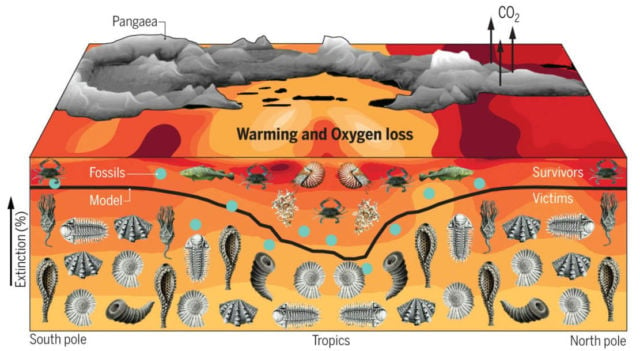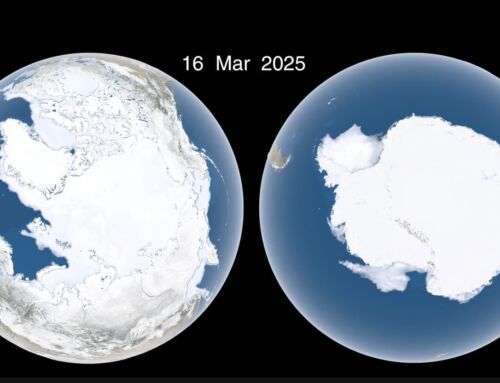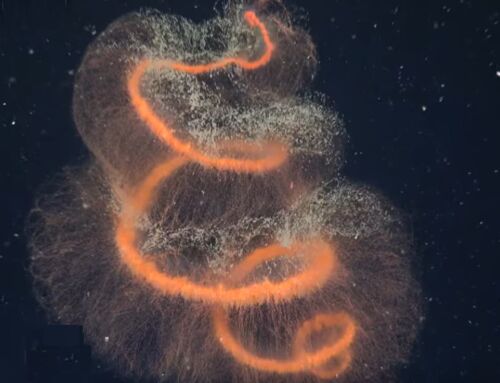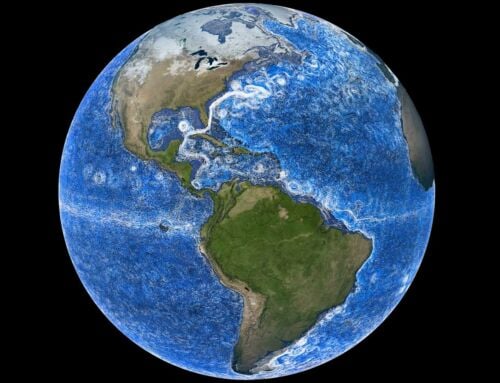Biggest extinction in Earth’s history, marked the end of the Permian period some 252 million years ago, caused by global warming.
Long before dinosaurs, our planet was populated with plants and animals that were mostly obliterated after a series of massive volcanic eruptions in Siberia.
The above illustration shows the percentage of marine animals that went extinct at the end of the Permian era by latitude, from the model (black line) and from the fossil record (blue dots). A greater percentage of marine animals survived in the tropics than at the poles. The color of the water shows the temperature change, with red being most severe warming and yellow less warming. At the top is the supercontinent Pangaea, with massive volcanic eruptions emitting carbon dioxide. The images below the line represent some of the 96 percent of marine species that died during the event. [Includes fossil drawings by Ernst Haeckel/Wikimedia; Blue crab photo by Wendy Kaveney/Flickr; Atlantic cod photo by Hans-Petter Fjeld/Wikimedia; Chambered nautilus photo by John White/CalPhotos.] Credit Justin Penn and Curtis Deutsch/University of Washington
Fossils in ancient seafloor rocks display a thriving and diverse marine ecosystem, then a swath of corpses. Some 96 percent of marine species were wiped out during the “Great Dying,” followed by millions of years when life had to multiply and diversify once more.
What has been debated until now is exactly what made the oceans inhospitable to life – the high acidity of the water, metal and sulfide poisoning, a complete lack of oxygen, or simply higher temperatures.
New research from the University of Washington and Stanford University combines models of ocean conditions and animal metabolism with published lab data and paleoceanographic records to show that the Permian mass extinction in the oceans was caused by global warming that left animals unable to breathe. As temperatures rose and the metabolism of marine animals sped up, the warmer waters could not hold enough oxygen for them to survive.
The study was published Dec. 7 in Science.
source University of Washington






Leave A Comment